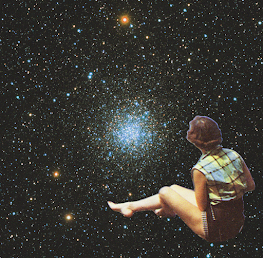"How Neo-Advaita emulates messages of narcissistic caregivers - Michael Lydon
Realization Process® Certified Senior Practitioner
https://www.realizationconsulting.com/
"There are many pathways to awakening that assume a ripening and maturing process in one's experience of realization. By analogy, you grow from a child (pre-awakening) into an adult (somewhere on the awakening continuum). The problem with neo-advaita teachings (the one's I've been exposed to) is that they maintain that it is an illusion to be a child in the first place.
This is because they make no effective distinction between the person who has gone through the ripening and maturing process, and the one who hasn't. They do this by taking an ontological stance that the self is unreal, and because it is unreal, it never actually existed, and thus does not exist now (even if, for the student, their self does feel real as an immediate experience of life and being). For this reason, the method of teaching is often a form of repeating or discursively arguing to students that they are simply under some illusion of a self that doesn't exist. And this is why I believe (and have experienced in my early 20s) that neoadvaita (and similar teachings) can be harmful to one's psychological development...
Unless a student is able to learn and practice a pathway of transformation that follows the mind-body system's own innate rules of ripening, what will happen is a form of counteracting, overriding, and bypassing.
Also, the idea that there is "no free will" is a metaphysical statement that is still controversial even by scientific standards. If someone is a rape victim, it's both unkind and unhelpful to tell them that they were never raped because there's no one there to be raped, or to tell them that "there is no free will" - so that must have been the only way it could have happened. I'm not suggesting that the OP is recommending either of these responses to a rape victim, but in my experience (as someone who works as a nondual therapeutic practitioner), it's about helping that person resolve and heal the impact of that experience, and not about imposing some agenda of nondual metaphysics.
Anyway, the reason I really can't get behind the neoadvaita teachings I've been exposed to is because they begin with a closed logical circle that denies self, denies development, thus denying the need for practice; and in my view this can closely emulate the messages of narcissistic caregivers. From a teaching point of view, they seem to not acknowledge relationships, regardless of whether they are in healthy relationships themselves.
A lot of the neoadvaita teachings to me, read as implicitly dualistic, as they seem to be in their own type of shadow struggle with all of the self qualities that they are emphatically denying all the time, or they locate themselves as something unique and special - outside of or siloed from other areas of human psychological development - which they are not. The experience of nonduality *can* actually alleviate a great deal of suffering, though in my experience, ontologically denying the self that suffers is not the most skillful way or compassionate way forward."




Comments
Post a Comment